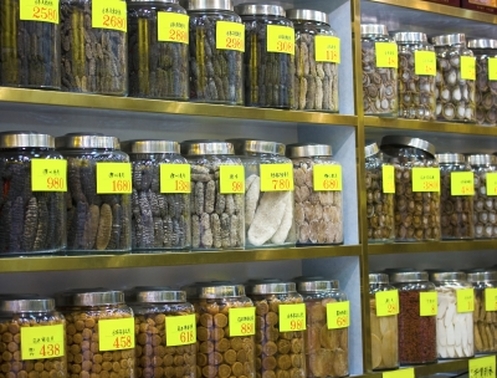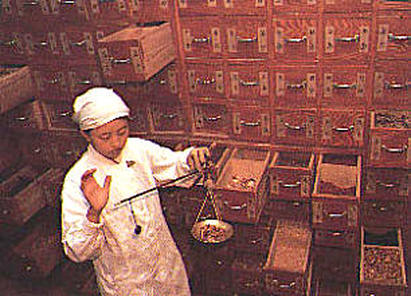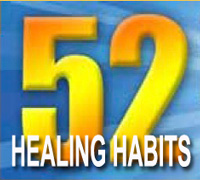
Traditional Chinese Medicines
How safe and effective are Chinese Herbal Medicine compared to conventional (“Western”) medicine? With the advent of the global individual and the liberalization of trade worldwide, the barrier between both traditional Chinese herbal medicine and conventional medicine is slowly mixed up.
Traditional Chinese herbal medicine is a system of health care that originated in China for more than two millennia ago. Just like the Humors expounded by Hippocrates, the father of Medicine, where four distinct fluids (or humor) affect the person’s health and temperament, Chinese herbal medicine is grounded on the concept of harmony in the flow of the body’s vital energy, the “Qi”. Any imbalance between the Qi or the humors result to disease.
Traditional Chinese medicine is still popular in China. Around 40% of the health care delivered in China is a mixture of conventional and traditional Chinese medicine. On the other hand, traditional Chinese medicine is slowly gaining ground in conventional health care practice in the Western world.
Checking on adverse events in Chinese herbal medicine is a bit difficult since the trials available for scrutiny are small and face a more difficult predicament compared to conventional medicine adverse event reporting.
Afterall, how many doctors actually report adverse events of the drugs they prescribe? Translate that to thousands of tablets prescribed daily with any adverse reaction to the medicine barely reaching the table of a physician.
To answer the question of effectiveness of Tradional Chinese medicine under a scientific eye, one has to utilize scientific methodologies that will check for biases, errors in methodology, integrity of results, and matched for their purported clinical are and type of outcome.
In a study published by Shang and company in the International Journal of Epidemiology (2007), they found that none of the 136 trial reports of Chinese Herbal medicine study mentioned change in the medication dose after patients came in for follow-up and only two trials actually used individualized treatments. This tend to make small studies of Chinese herbal medicine reporting more benefits than larger studies since studies of smaller magnitude tend to individualize their treatment.
The same researcher concluded biases are “most pronounced” in placebo-controlled groups. Adequate data is not available to properly and factually conclude beneficial effects in taking Chinese herbal medicine.
Many people maintain a misguided concept that if it is“herbal” there is no side effect. One obvious case in point that many are not aware of is with Ginseng and Gingko biloba. Both are commonly included in herbal products and has been highlighted in vitamins and other conventional medicine. But unknown to many taking these two herbal substances with blood-thinning agents or for those with a preponderance to bleed actually predispose the user to a
bleeding episode that may just prove fatal.
The principle of “Do No Harm” has to be in our mind always. Not all that glitter is gold. Herbal medicine has to be quantified properly and analyzed scientifically before being qualified as a remedy for something or just about anything.
Are Chinese Medicine Safe?

Traditional Chinese Medicine Preparation http://bit.ly/JwVa1Z
In any given time it is not unusual to find one customer in a pharmacy ask for “medicines” that are not actually registered in the Food and Drug Administration. Some of the most common products that are asked are “Betet” and “Flucinonide”.
In a popular Chinese drugstore in the Philippines, one can find an array
of products that have Chinese characters that are beyond the comprehension of most Filipinos. They are written all over the packaging. To search for the
required BFAD permit number, Lot/Batch No., manufacturing date and expiry date will lead you nowhere. They are simply not there.
If one takes some time people-watching in one of these drugstores, you may find people dropping by to ask the Chinese owner what is good for this particular ailment with such features and accompanied by this other malady. The old man, trying to impress upon the hapless Filipino that he bears the wisdom of the ages (without a degree to back it up), would dispense some products that the native will swallow hook-line-and-sinker!
A recent study conducted at Murdoch University in Australia showed that samples of herbal teas, capsule, flakes and powders from products seized by the Australian border officials revealed that almost 70 different plant families from 15 samples contained toxic materials if taken in the wrong
dose or quantity.
For these products that came without the benefit of Google-translated packaging materials that is so often present in subtitles of pirated DVDs and Chinese products, knowing the right dose, timing of intake, and duration of treatment is at best a simple guesswork.
Other plant agent such as Aristolochic Acid that cause urinary tract and kidney cancer was also found by the researchers. Illegal substance likely ephedra was also found among the seized imported goods.
Human life is not only at risk when consumers go for Chinese medicines. The world’s fauna are also in danger. The Australian researchers found traces of endangered animals such as Saiga antelopes. Labels that bear
these products were also misleading. Touted to be “100% Saiga Antelopes”actually contained goat and sheep DNA.
Some patrons (and matrons) of Chinese medicines are practicing Hindi. Little they know that some products from drugstores selling traditional
Chinese medicine actually contain deer and cow parts.
One cannot expect that the sales of traditional Chinese medicines will decline in the years to come. Doctors often advise patient to refrain from
taking medicines the pharmaceutical industry, Food and Drug Administration, much less the patient, have little knowledge of. What is often clear is the fact that these products hold little promise to the consumer. The drugstore will continue to sell since it is lucrative. They do not have any ethical principles to govern their business.
(By the way, I have Chinese blood running through my veins and I
am a businessman, as well.)



 RSS Feed
RSS Feed